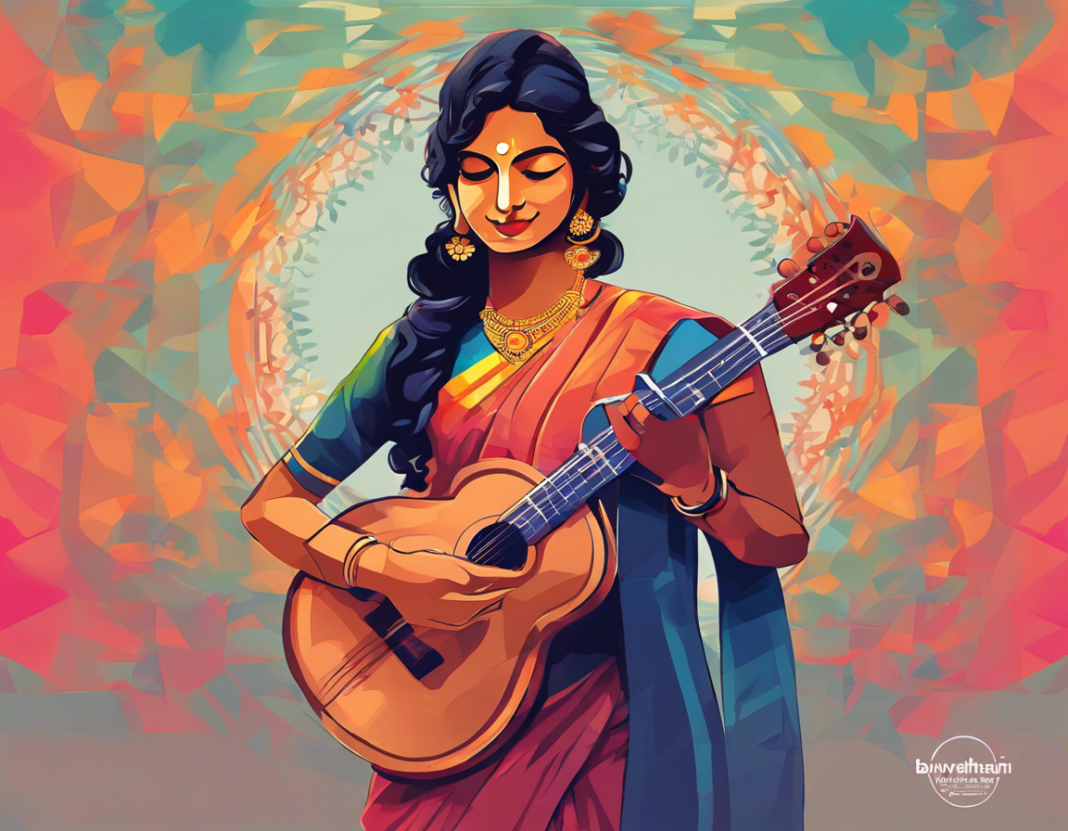Introduction
Bavatharani songs are a unique and traditional form of musical expression that originates from the rich cultural heritage of South India, particularly from the Tamil Nadu region. The term “Bavatharani” refers to a form of devotional music that is sung in praise of the goddess Devi or Amman. These songs are deeply ingrained in the religious and spiritual practices of the people in this region and are often performed during festivals, rituals, and ceremonies.
History and Origins
The origins of Bavatharani songs can be traced back to ancient Tamil literature, particularly the Sangam literature, which dates back to over two thousand years. These songs have been passed down through generations orally and have evolved over time to become an integral part of the culture and identity of the Tamil people. The poetic and melodic nature of Bavatharani songs reflects the deep connection between music, language, and spirituality in South Indian culture.
Characteristics of Bavatharani Songs
Bavatharani songs are characterized by their devotional lyrics that praise the goddess Devi in her various forms and manifestations. The songs are typically sung in a call-and-response format, with a lead singer leading the verses and the chorus joining in with the refrain. The melodies are often simple and repetitive, making it easy for the audience to participate and sing along.
The lyrics of Bavatharani songs are usually composed in classical Tamil, with rich poetic imagery and metaphorical language that conveys deep spiritual and philosophical meanings. The themes of the songs range from praising the virtues and attributes of the goddess to seeking her blessings for protection, prosperity, and well-being.
Significance of Bavatharani Songs
Bavatharani songs hold a special significance in the religious and cultural life of the Tamil people. They are believed to have the power to invoke the presence and blessings of the goddess Devi, and are often performed as a form of worship and devotion. The songs create a sense of community and unity among the participants, bringing together people of all ages and backgrounds in a shared spiritual experience.
In addition to their religious significance, Bavatharani songs also serve as a form of cultural expression and identity for the Tamil community. They are a way of preserving and promoting the rich heritage of South Indian music and literature, keeping alive traditions that have been passed down through generations.
Popular Bavatharani Songs
There are several popular Bavatharani songs that are commonly sung during festivals and religious ceremonies in Tamil Nadu. Some of the well-known songs include “Varuvai Varuvaai”, “Bavatharani Varugayile”, and “Amman Kovil Kizhakale”. These songs are beloved by the people for their melodic beauty, lyrical richness, and spiritual depth.
Performing Bavatharani Songs
Bavatharani songs are typically performed in temples, community halls, and during religious processions and festivals. A lead singer or group of singers will sing the verses while the audience joins in with the chorus. Instruments such as the nadaswaram, thavil, and mridangam are often used to accompany the singing, adding a rhythmic and melodic dimension to the music.
FAQs (Frequently Asked Questions)
Q1: What is the significance of Bavatharani songs in Tamil Nadu culture?
A1: Bavatharani songs are considered a sacred form of musical expression that is deeply intertwined with the religious and cultural practices of the Tamil people. They are believed to invoke the presence and blessings of the goddess Devi.
Q2: Are Bavatharani songs only sung in temples?
A2: While Bavatharani songs are commonly performed in temples, they are also sung in community gatherings, festivals, and religious ceremonies as a form of devotional expression.
Q3: Can anyone sing Bavatharani songs, or is it restricted to certain groups?
A3: Bavatharani songs can be sung by anyone who has a devotion to the goddess Devi. There are no restrictions based on age, gender, or social status.
Q4: What is the role of musical instruments in Bavatharani song performances?
A4: Instruments such as the nadaswaram, thavil, and mridangam are often used to accompany the singing of Bavatharani songs, adding a rhythmic and melodic dimension to the music.
Q5: Are Bavatharani songs passed down through generations orally, or are there written sources available?
A5: While Bavatharani songs have been passed down orally through generations, there are also written sources in classical Tamil literature that contain these devotional songs.
Conclusion
Bavatharani songs represent a unique and enchanting form of musical expression that reflects the deep spiritual and cultural heritage of Tamil Nadu. Through their devotional lyrics, melodic beauty, and rhythmic intensity, these songs continue to captivate and inspire people, keeping alive traditions that have been cherished for centuries. The significance of Bavatharani songs goes beyond mere entertainment; they are a form of worship, devotion, and cultural identity that connect people to their roots and to the divine.

